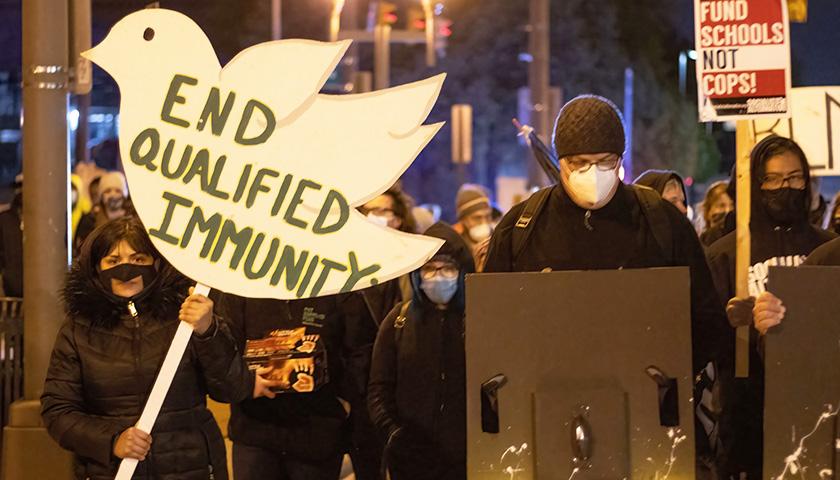A group of Ohioans wants to try again to change the state’s Constitution to permit lawsuits against government employees.
By placing the proposed amendment on the general election ballot for 2024, the Ohio Coalition to Eliminate Qualified Immunity (OCEQI) aims to close what it refers to as a legal loophole – qualified immunity. Similar measures have been rejected twice before for various reasons.
In a news release, the group claims that immunity has prevented individuals from “seeking justice” for the wrongdoing of rogue officers and has resulted in a lack of responsibility for law enforcement officials.
According to the Legal Defense Fund, state and municipal politicians, members of law enforcement, educators, and other public servants are shielded from civil liability lawsuits by a legal doctrine known as qualified immunity, unless they infringed a clearly recognized constitutional right.
According to The OCEQI executive director Kyle Pierce, all government employees should have accountability for their actions.
“We believe that all government officials, including law enforcement officers, should be held accountable for their actions. Ending qualified immunity would help ensure that victims of misconduct have the ability to seek justice and would promote transparency and accountability within law enforcement,” Pierce said.
To place the amendment on the ballot, the group started a statewide campaign. It must gather sufficient signatures before the procedure moves on to the attorney general, who can address legal issues. The Secretary of State then weighs in on ballot questions. The legislature then has to decide whether to act on the idea or allow it to go to the voters.
“As citizens of Ohio, it is important that we understand the impact of qualified immunity and work towards ending it in our state. Together, we can make a real difference in the lives of those affected by misconduct and bring about positive change in our communities,” Pierce said.
In 2021, House Democrats introduced House Bill (HB) 332, a package of bills addressing police reform that included legislation to eliminate qualified immunity. The legislation stalled in the House.
Attorney General Dave Yost rejected a petition in December of last year that sought to eliminate qualified immunity, claiming “the summary contained a material omission and the title of the summary was misleading.”
In January, State Representatives Brian Stewart (R-Ashville) and Derek Merrin (R-Monclova), along with thirty-plus GOP co-sponsors, re-submitted the “Ohio Constitution Protection Amendment,” which aims to require support from at least 60 percent of voters rather than a simple majority to pass future proposed amendments that lawmakers introduced last legislative session.
Although Stewart said there was ample time to have the amendment on the May ballot, it did not pass in the Ohio House and Senate before the February 1st deadline.
Lawmakers now face an August 9th deadline to get the proposal before voters in November. In order for Stewart to get his resolution on the November ballot, three-fifths of the members in both chambers have to approve the resolution first. In the House, that’s 60 votes.
– – –
Hannah Poling is a lead reporter at The Ohio Star and The Star News Network. Follow Hannah on Twitter @HannahPoling1. Email tips to [email protected]
Photo “Qualified Immunity” by Becker1999. CC BY 2.0.





